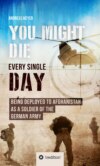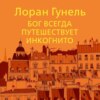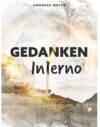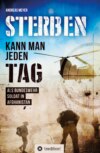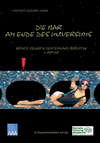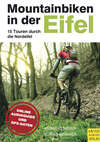Читать книгу: «YOU COULD DIE ANY DAY», страница 3
6. Support from Austria
I
n addition to all our tasks there was another huge challenge that had an effect on all of us. The Afghan elections on the 18th of September. They were the first free elections for this country’s people since 1988 in which they had to vote for the 249 seats in the parliament as well as for the provincial authorities. For the first time women were also given the right to vote and to run for the representing positions. Among the 2800 candidates were 330 women. Due to the threats by the Taliban, other terrorist militias and opposing forces against these elections the ISAF forces had the order to secure the preparation and execution of these elections. Therefore, we received support by the Austrian Response Forces Team (AUCON3 / ISAF). This Austrian contingent consisted of 85 men and was put under German command. For the duration of their mission they were hosted by us in the camp.
The teamwork with our Austrian comrades was characterized by professionalism and yes, you may call it harmony, which was clearly due to a similar cultural background and both our nations speaking the same language. My impression was confirmed by Armin who had to work with them outside the camp on a daily basis and like me had the chance to join my Austrian colleagues for patrolling KUNDUZ city one time.
This patrol was one of the most intense experiences I had outside the base. We began our way from the direction of the Atzbeigi Mosque, along the Spinzar company which was the biggest supplier for cotton in whole Afghanistan those days. The people, especially the youngsters and the children greeted us in heartwarming ways, giving us the feeling of being welcome. It’s a wonderful but also strange feeling that is spreading through my whole body thinking of what we were told during pre-mission training of being in the back sight every moment of our mission. I have to mention that in those days it was possible for us to perform patrols without heavily armored vehicles. This changed rapidly the following years.

Austrian soldiers on patrol
One of the most fascinating things was the alignment of the streets where the merchants were offering their goods. It was so different from how it is at home, where you have stores or the weekly markets, where there is one tent with fruits and vegetables and at another you would find cheese. In Afghanistan you have one street where you find fabric of all variations and colours. Another only for all types of meat. Another only with coal and wood. And so on and so on. Heads of cow and sheep hanging in front of doors or being presented on tables. As said, it is absolutely incomparable with Europe.
Being as different as it is, it’s working out well. Goods are cooled with ice cubes as it was done for hundreds of years. Being a qualified cook, my heart bet like hell when I saw and smelled all those exotic seasonings offered in one of the streets. The Pakistani / Indian influence is obvious in the afghan culinary culture. The most favored seasoning in afghan cuisine is Garam Masala, which is a mixture of Safron, Cinnamon, Mint, Caraway seed, Pepper and Chili. Other much appreciated seasonings in Afghanistan such as Dill, Coriander and Cloves are proof of the Persian and Arabic influence. This country could be a paradise to me, if it was not for the serious cause of my presence there.
A few days later I got the opportunity to go to the city’s market for "shopping" along with my interpreter. I had to buy wood for some construction work that had to be done in the
camp.
 spice market in Kunduz, a paradise for cooks
spice market in Kunduz, a paradise for cooks
The translator wears the national costume. I am clearly recognizable as a soldier in my uniform. I'm obviously the stranger. I'm getting scared for a moment. I realize that something could happen to me. The unknown dark faces with their long beards are watching every step we make. The security situation then was very uncertain. A stay on this market was definitely not safe. As it turns out later, my feeling was not unfounded, but this day the uneasy feeling in my stomach remained without consequences. In hindsight, I probably worried too much. This day would be the last one I felt this kind of fear.
The impressions of this day remain in my memory in every detail. In the coming days, weeks and months I will experience situations that are similarly threatening, but which I will not experience as intensively as on this particular day. But such thoughts and feelings about possible threats should be quickly forgotten when you are on a mission. One just has to walk through the streets with open eyes and a sharp mind.
The amazing thing about Afghanistan is that its people are very hospitable and friendly to strangers. They condemn the attacks of the terrorists the same way as the rest of the world does.
 It is a shame that due to the war these people cannot do more for their country like developing tourism. In my eyes, this wonderful country and its people deserve it.
It is a shame that due to the war these people cannot do more for their country like developing tourism. In my eyes, this wonderful country and its people deserve it.
Street vendor of flatbread in Kunduz
7. A baker and his flatbread
T
here is an Afghan baker near the camp where you can buy fresh bread every day, except on Fridays. While the flatbreads are in the oven, they are moistened several times with green tea. This is quite straight forward; the baker just takes some sips of tea in his mouth and sprays the tea on the bread. This generates the necessary humidity for the bread. At the end, the bread is sprinkled with salt, which gives them a spicy touch.
Despite of this unusual production method, it had become a tradition for us soldiers to eat there together every Saturday evening, and on this occasion this bread is eaten with pleasure. Additionally, we also put some specialties from home on the table.
It is actually very idyllic sometimes, which one probably cannot imagine. We sit at our table in front of our hut protected by trees and shrubs. In front of us on the table are the fresh flatbread, sliced bacon and ham from the black forest as well as homemade canned liver sausage, smoked blood sausage and fresh paprika, cucumbers and garlic.
We do this every Saturday evening with the COY commander, the first sergeant and other comrades. For a short time, it feels like holiday and we forget that we are on a mission in a war-torn land.
8. At the medic`s
O
n my daily round through the camp I visit various departments to see if everything is OK. Today I focus especially on the supply group that will receive a new load of barbed wire for the outer camp wall. Besides that, I am waiting for a lot of spare parts for our vehicles.
From a distance, I already see the truck of an Afghan transport company. I watch briefly as the truck is unloaded and checked by the supervising NCO of the supply group if all parts we have ordered were on board or whether I will have to make a phone call like so many times before.
Suddenly I hear the siren of the ambulance and two other vehicles of the security company leaving the camp. I keep on concentrating on the unloading of the truck. Half an hour later I make my way to my office and hear from other comrades that there was an attack in Kunduz. That moment it was not clear if there were Germans among the victims.
I sit in my office feeling bad. The recce squad that had left the camp this morning still isn’t back. When my boss enters my office, I turn to him asking immediately if he has any news. He does not. Further information has not been spread so far. The security component though requested additional personnel.
Sometime later we hear the sirens of a bunch of ambulances entering the camp. There are definitely a lot of casualties I think to myself. We often witness the procedures of wounded being brought to the camp, so we know that our medics take their job seriously and handle it professionally.
At about 1900 I have to meet with the air logistics supervisor to coordinate the loadings for the upcoming day. On the way to him I pass the surgery containers of our medics and watch some red fluid leaving the containers drain hole forming a puddle at the back side of it. That means that our medics had some awful work to do. The thought of me lying on their table one day makes me shiver.
Passing the containers I see two military doctors smoking cigarettes. They were shaking their heads mentioning an afghan police officer being wounded very badly in the attack. I know it should not matter, but in that moment, I am so glad to hear that it was not one of our guys. I am also glad to hear that the afghan police officer has survived.
A few days later I am invited for coffee at the medics’. When I enter the front tent, I see an afghan boy coming up to me. He holds an inflated rubber glove with a smiling face drawn on it with a pen in his hand. The boy is laughing and seems to have so much fun with his "toy". I see a sign saying "coffee corner" and approach it, when the boy somehow stands directly in front of me. He stretches out his hand in my direction holding his rubber glove balloon. I wink at him passing by saying what a lovely balloon he has. The glance in his eyes fascinating me that much that I turn around to him again. What I see shakes me to the bones. Only now I recognize that he is just wearing a surgery shirt exposing his back. Where every healthy person would have buttocks there was just a hole. The pelvic bones were completely revealed under his skin and all the muscles were gone. Whilst playing with a "butterfly mine", his buttocks were blown off.
There are still thousands of these mines lying around everywhere. To the children they just look like unsuspicious toys. The boy I saw is one of so many examples of how dangerous these toys are. This picture will be planted in my head for all times.
A friend of mine from the medics told me that this boy already had ten surgeries and will have to face a few more. Despite his heavy injuries the boy is so incredibly happy and has a love for life that he shows the medical personnel every single day. I just hope that one day he will have a life worth living. Therefore, I wish him all the best.

 entrance tot he emergency
entrance tot he emergency
A jungle truck brings material out of Kabul
9. Earthquake in Pakistan
S
aturday October 8th, 7 AM. Saturdays actually always offer the possibility to stay in bed a bit longer …but not today. Due to the J4 section being accommodated in a clay building our private as well as our duty rooms are located in the same facility. For the Saturday duties we do weekly shifts because its weekend in Germany. That’s why on Saturdays and Sundays there is nothing we can do if it is related to support for the PRT from Germany.
But today I am startled out of my coziness quite harshly. My field bed is shaking and the dry clay is crumbling from the roof directly on my face. I jump off my bed immediately and run out. At least I try to. The ground is shaking as heavily as if you would run on raw eggs. In that very moment I realize: it’s an earthquake.
It’s the first earthquake I experience live myself. It only takes a few minutes and suddenly it’s all calm again. Only a few light aftermaths are to follow. Nothing really serious. But just a few minutes later we receive the message that the north of Pakistan hasn’t been that lucky. The region was hit by a quake of 7,6 on the scale with an epicenter only 50 kilometers away from its capital ISLAMABAD leaving large areas fully destroyed.
The regions of Afghanistan, Pakistan and India have been struck by earthquakes quite often in the past. But this time it was unusually heavy and brought seemingly endless destruction and suffer ing to the people concerned.
ing to the people concerned.
Heavy earthquake in northern Pakistan in 2005
Within moments our assignment turns into a humanitarian support mission for the victims of this catastrophe. It takes only a few hours for the German Bundeswehr to provide a support package of Soldiers and Materials to be sent to Pakistan. On the very same day 2 additional CH-53 transport helicopters are sent on rescue and support missions to MUZAFFARABAD. In the following days they will provide tons of food, tents, a water treatment plant, thousands of blankets, 1.5 tons of medication, thousands of MREs and much more to the people in desperate need. Unfortunately, the efforts of all the other nations will save 80.000 people from dying from this horrific catastrophe.
The map on our office wall shows how close to Afghanistan the earthquake actually happened. According to internal reports our guys in FEYZABAD felt the quake obviously much more intense than us in KUNDUZ. What I had witnessed here myself was more than enough to imagine the horror that the Pakistanis had to face on this day. At least we are here in the right place and at the right time to save many people from starving and also becoming homeless in such a tuff environment.
It’s odd. At home you watch the news and see these kinds of pictures and hidden inside you think to yourself: thank God these things never happen over here. But being here, only less than one hundred kilometers away from its epicenter…feeling it right in your bones and stomach. It makes you feel related to all these suffering people and you can’t stop thinking and imagining how much worse it was for them being closer to the disaster and its aftermaths.
At lunch time I meet with Armin. The only topic we speak about is the earthquake. But he too has only heard the same information as I already got. And like me he is asking himself why it always has to be the ones who already have nothing who suffer the most. We both know there will never be an answer to that.Despite the earthquake in the morning the rest of the day is developing normally. All of us do our business as usual. At the end of the day I meet with Armin again and we are playing some “Kicker” to get rid of those negative thoughts. Armin tells me about his day which was dominated by a project outside the camp that he had to support. He describes his actual tasks and role. As a CIMIC officer he is getting in contact with majors and elders of regions and villages in our AOR in order to inform them about projects from our PRT forces. This could be for example the establishing of a new or additional police station or other security facilities. It is mostly not necessary to beg for their support because most of them are happy for every infrastructural support they can get. And of course there is the fact that basically every project is in need of local companies’ and workers’ support and this is the main step to prosperity.
Of course, these CIMIC soldiers aren’t going out on such missions on their own. They are always accompanied by protection teams of our army. Such a convoy consist of at least about 30 German soldiers on 2 DINGO armored combat vehicles, 3 FUCHS armored personnel carriers of which one is specially equipped with devices to disturb radio signal activated IEDs and one to function as an armored medics rescue vehicle. Furthermore, this convoy will be accompanied by 2 pickups of the Afghan National Police (ANP) with 12 riflemen.
Before that I had no clue what the CIMIC guys actually do. Armin asks me if I would like to accompany them next time to have a look myself at how they operate.
Already a few days later we are able to make it possible for me to come with them. I join the CIMIC team to check the status of project “School”. It’s always interesting to see how the population is accepting our help and that of other organizations. Project “School” is about a girls’ school that was attacked and destroyed by the Taliban. By destroying that school, the enemy also burned down the chances for education and therefore a better life for the girls in that region. To give these kids back the opportunity to learn, the school is rebuilt by local companies with our support. The progress is already quite visible and you can see the main walls. One of the things that impresses me the most is how these workers are able to carry out all the tasks with the simplest tools and the total absence of modern devices. Calculating is done in the sand. As a spirit level they used a hose filled with a certain amount of water. Absolutely amazing.
The following days pass by quickly and Armin has to go to KABUL before he leaves for Germany 14 days later. At that time for me there were less than 8 days till my assignment ends. We agree that we definitely have to catch up back in good old Germany. On our last evening together we relax in the garden in front of our MWR tent and chat about the one or other weird comrade or the stupid behavior of some officers and how we see the world. Nonsense basically. In that moment none of us has even the tiniest idea what is about to come up in the near future. Like always when it comes to say farewell to a comrade I personally know I am already waiting for Armin in the early morning at the market. He is in a good mood of course. Happy that it’s only a few days left separating him from home and his loved ones. He gets in the MUNGO turns back to me and says: “Keep your head down!” I wave my hand for good bye. After he landed in KABUL he calls me from his duty phone to report that he is fine. The day before I have to leave Afghanistan he calls me and we are looking forward to meet back home. It will be or very last conversation. Forever.
The 14th of November is the day when I am about to leave KUNDUZ. It’s a lovely day. The sun shines brightly and warm. At 0900 hours we fly with the CH-53 from KUNDUZ to TERMEZ in Uzbekistan. At 1400 hours I take the MoD Airbus to STUTTGART. I am so looking forward to be home! I can’t wait to get there. Suddenly these feelings of joy and happiness get mixed with a strange uncomfortable feeling. That feeling shall become a presentiment which is to be followed by an ugly certainty. While I am flying to STUTTGART Armin’s Vehicle within the convoy is rammed by a vehicle borne IED. The blast is so immense that Armin dies immediately while 2 other soldiers of the same vehicle are heavily injured but at least alive. It’s the second comrade of mine I personally know to sacrifice his life on a mission for his fatherland.
I still have these pictures of Christian and Armin in my mind. I will keep them there for the rest of my life.

mourning party for Armin who fell in Kabul
10. My time in between the missions
W
e landed safely in STUTTGART where my nowadays ex-wife and Marco were already waiting for me. On the way home, 40km before we arrived, my head started spinning and thoughts came up about everything I had witnessed, so that I was not even able to feel happy about being home. Of course, I tried to hide the fact. I needed some time to get acclimatised to this rapid change of environment. Nevertheless, I immediately started to work again. There have been a lot of changes to personnel circumstances during my absence which I had to adapt to. Everything seemed somehow different and when I got a new job offer I decided to change my employer and start something new. I became the Team Bus Driver for the Gerolstein-Sports-Bicycle Team. I got a bus driver license and from 2006 on, I drove the Athletes from town to town throughout Europe. From competitions classics like the Paris-Nizza to regular one day tournaments like Paris Roubaix (250km) to the highlights like Giro d’Italia, Tour de France or the Vuelta a Espana. In those days, bicycle sports were also very famous in Germany. It was the time before all those doping affairs ruined these unique competitions. I have to admit that I was addicted to bicycle racing sports. However, I never got beyond the amateurs’ class. But this fact definitely had its part in me being so satisfied with my new assignment.
In the following two years I saw a lot of the world, especially of Europe. Both years we were on the road from February to October and I was away from home quite a lot, but it was an experience that I would not want to miss. Unfortunately, this adventure ended soon after the season of 2008.
 waiting at the finish in the french Pau
waiting at the finish in the french Pau
Бесплатный фрагмент закончился.
Начислим
+27
Покупайте книги и получайте бонусы в Литрес, Читай-городе и Буквоеде.
Участвовать в бонусной программе
